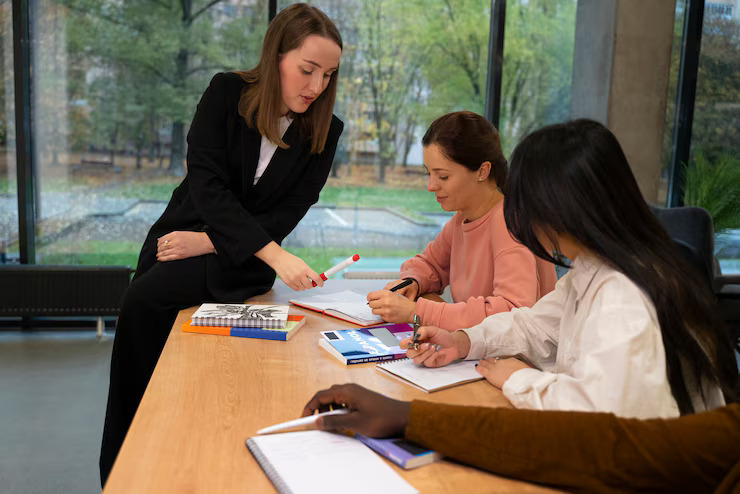Cognitive Skills: Why Good Thinking Helps You Do Better in Life

Thinking Well Beats Just Working Hard
Why mental sharpness makes a long-term difference
You’ve probably heard people say, “Just work hard and you’ll succeed.” And while hard work does matter, it’s only part of the story. What really drives long-term progress is how well you think. The ability to analyse, focus, and make smart decisions quietly powers everything from how you manage your time to how you respond under pressure. Good thinking isn’t flashy, but it’s one of the most reliable predictors of real-life success.
The hidden role of thinking habits in success
Let’s be honest, most of the challenges we face aren’t solved by just doing more. They’re solved by doing better. Someone who knows how to break a problem down, look at it from a different angle, and take action with clarity will always move forward faster. These aren’t magic traits. They’re the result of strong thinking habits. In everyday life, these habits help you stay grounded. In the workplace, they set you apart.
What Are Cognitive Skills in Everyday Life?
Examples of cognitive skills you already use
Cognitive skills are the mental abilities your brain uses to function well. These include attention, memory, reasoning, logic, learning ability, and flexibility. You use them when you switch between tasks, remember your schedule, learn something new, or think through a difficult situation. Most of the time, you use them without even noticing. But once you start strengthening them deliberately, you’ll see the benefits everywhere.

Why these skills aren’t just for school or tests
There’s a misconception that cognitive skills are only relevant in academic settings. The truth is, they’re vital far beyond the classroom. Whether you’re negotiating with a client, working through a financial plan, or planning your career move, how you think determines how effective you are. That’s why more professionals are starting to include thinking skills in personal development. The stronger your brain habits, the smoother your progress becomes.
Career Growth Starts With How You Think
Smart decisions in work settings
Let’s take an example. Imagine a situation where your manager changes the scope of a project halfway through. Someone with weak cognitive flexibility may feel stressed and stuck. But someone who thinks clearly will adjust, prioritise, and keep the team moving. This ability to adapt without spiraling is what separates average performers from trusted team players.
Why employers value thinking over memorizing
Modern workplaces are full of change. Job roles evolve. Tools shift. Instructions aren’t always clear. In Singapore especially, where innovation and agility are key, companies want employees who can think independently. During hiring, many managers say they look for problem-solving ability even more than technical knowledge. If you're working through Singapore career guidance and planning your next steps, know this: your thinking habits are one of the most transferable assets you can develop.
What Singapore Career Guidance Often Misses
Traditional coaching vs. cognitive-based advice
A lot of career coaching still focuses on job applications, interview prep, or resume tips. That’s useful, but it skips over something more powerful. The best career growth starts from the inside out. It begins with knowing how to stay calm, solve problems, ask better questions, and learn quickly. These internal tools help you succeed in any role. That’s why many professionals now seek Singapore career guidance that includes thinking development alongside technical planning.
Why mindset and mental habits matter more today
With remote work, changing industries, and digital transformation, mental agility is becoming a must. It’s not just about who knows the most. It’s about who can process information, adjust expectations, and keep moving forward. You don’t have to be a genius. You just have to stay mentally sharp. That’s a habit anyone can build.

How Better Thinking Improves Your Work
Solving problems without panicking
You’ve probably seen this before. A small issue spirals because someone gets overwhelmed. But another person, with the same tools, works through the situation calmly. The difference? Their thinking habits. They take a moment to pause, figure out what is actually happening, and respond with logic instead of emotion. That steady and clear-headed approach reduces errors and quickly builds trust.
Staying focused when things get busy
Cognitive control helps you manage focus, even when distractions are everywhere. At work, this might mean shutting out background noise to finish a report. Or filtering through conflicting messages to clarify a task. In busy offices and fast-moving teams, the ability to think clearly under pressure is one of the most respected traits you can build.
Small Habits That Make You Mentally Sharper
How daily routines affect clarity and decision-making
Your thinking doesn’t just happen. It’s shaped by your habits. Sleep is one of the biggest factors. Without enough rest, your brain slows down. You miss details. You react emotionally. Add exercise, hydration, and nutrition, and you’ll notice how much clearer your thoughts become. You don’t need to overhaul your life. Even small steps like getting better sleep or cutting phone time before bed can make a real difference.
Sleep, reading, mindfulness, and breaks
Reading helps your brain stay active. Mindfulness helps you reset and reduce mental clutter. Breaks help you recharge and prevent burnout. Together, these simple habits strengthen your ability to concentrate and reason. Over time, they build the foundation for sharper decision-making. No matter what field you’re in, whether it’s finance, healthcare, design, or education, that’s the kind of quality employers genuinely value.
Cognitive Flexibility vs. Fixed Thinking
Why rigid mindsets hurt long-term careers
People who stick to one way of thinking often struggle as industries evolve. They resist new tools. They avoid feedback. They feel stuck. Cognitive flexibility means being open to change. It means being willing to say, “I don’t know, but I can figure it out.” That kind of thinking keeps you employable, especially in fast-paced economies like Singapore where adaptability is gold.
How to bounce back faster from setbacks
Life throws curveballs. A job offer falls through. A project fails. Your plan doesn’t work. With strong thinking habits, you don’t take it personally. You analyse, learn, and try again. That’s resilience, and it comes from strong cognitive health just as much as it does from motivation.
Students and Young Adults: Why Start Early?
Thinking well now builds confidence later
For students or those starting out in the workforce, now is the best time to sharpen your thinking. Strong mental habits help you learn faster, handle pressure better, and communicate more clearly. You don’t need to have all the answers. But if you can think your way through problems, you’ll stand out early and keep progressing as your career grows.
How schools in Singapore are shifting their focus
More schools and universities are recognising this shift. Alongside test scores, they’re starting to focus on critical thinking, analysis, and decision-making. Some career coaches even design workshops around this. If you're seeking Singapore career guidance from an early stage, don’t just focus on grades. Build the skills that actually help you grow in the real world.

Can You Train Yourself to Think Better?
How the brain responds to intentional effort
The brain is like a muscle. It grows when you challenge it. You can’t improve thinking overnight, but you can get better gradually. Start by questioning your own assumptions. Take a minute before reacting. Reflect on your choices. Over time, you’ll find yourself making sharper decisions, and people around you will start to notice the difference.
Realistic ways to sharpen attention and focus
Turn off distractions during tasks. Write down your thoughts when you feel overwhelmed. Schedule time for reading or quiet thinking. These habits train your attention, help you stay focused longer, and improve your ability to respond rather than react. That’s the kind of growth that helps you lead not just follow.
Final Reflection: Think Better, Live Better
In the end, the way you think shapes everything, from how you learn to how you work and how you solve problems. You don’t have to be the loudest or the fastest to succeed. You just need to think clearly. That quiet strength often takes you further than shortcuts or surface-level skills. If you’re navigating big decisions or unsure about your next step, strong thinking habits will carry you much farther than luck ever could. With the right mindset and thoughtful Singapore career guidance, you can train your brain to approach life with more clarity, calm, and confidence. And when that happens, you’re not just improving your performance, you’re improving your life.
Looking to strengthen your thinking and build lasting focus? Start with a career guidance platform that supports the way your mind works best.
